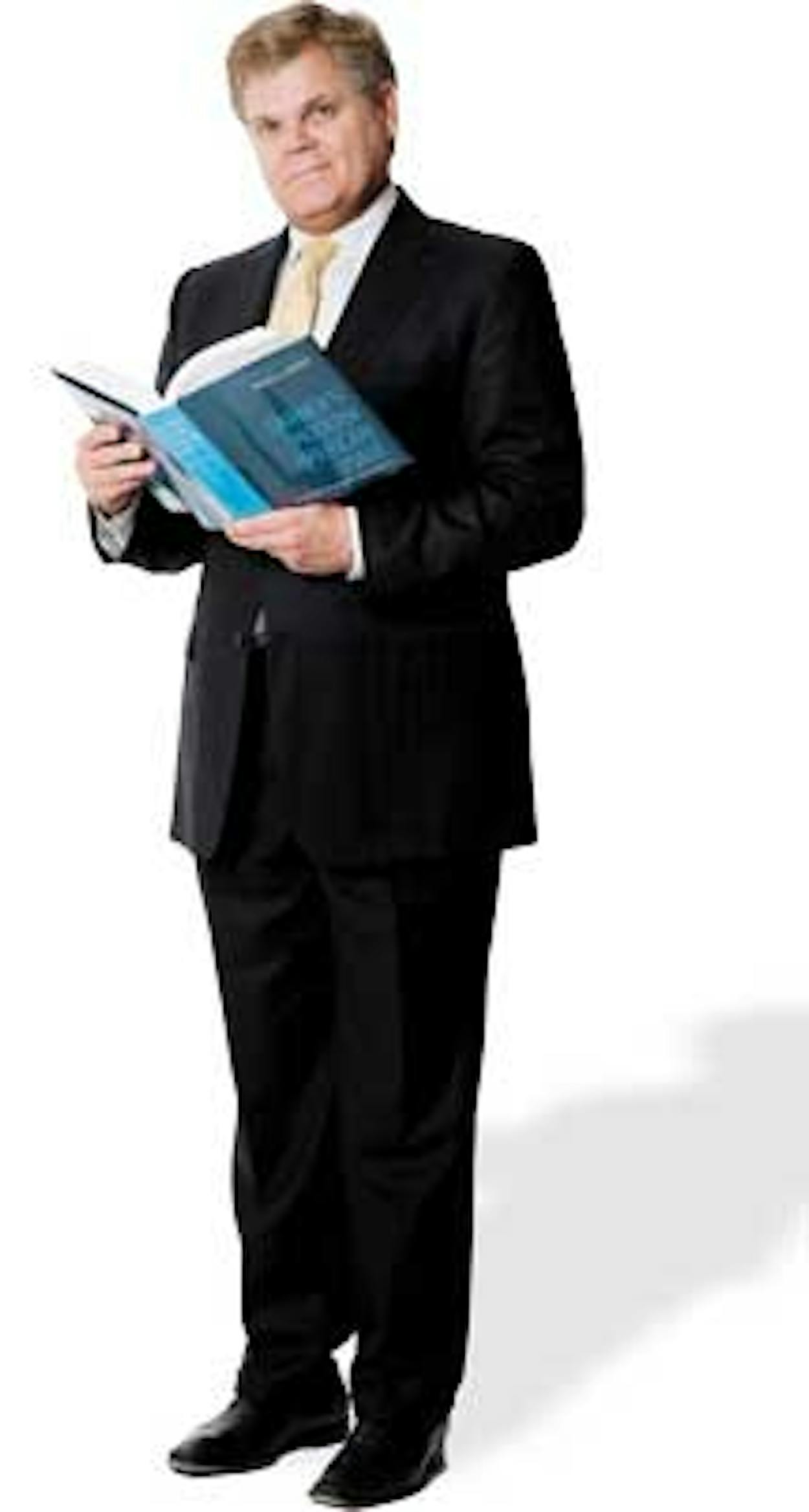NAME: Bryan A. Garner | AGE: 50 | HOMETOWN: Dallas | QUALIFICATIONS: Author of Garner’s Modern American Usage, the third edition of which was released in July; Garner on Language and Writing; and several volumes on legal writing / Editor in chief of Black’s Law Dictionary / Contributor to the latest edition of the Chicago Manual of Style / His daily “Garner’s Usage Tip of the Day” goes out to 20,000 e-mail subscribers
• As a little kid, I used to catch snakes. I had as many as thirty in our garage—my mother let me do this—and I memorized every kind there was. Later I wanted to be a paleontologist, so I memorized every kind of dinosaur. Then there was golf. I didn’t just play; I also went through hundreds of golf magazines and cataloged them according to subject matter. I’ve always been interested in A to Z presentations of knowledge.
• My reference library has somewhere between 29,000 and 30,000 books. The earliest one is called Snakes of the World.
• In high school a girl I very much admired said, “My, you have a big vocabulary.” I spent the next few years building a huge vocabulary, with all sorts of arcane words. It took me a while to realize my approach was not working on females at all.
• I still have that four-hundred-page vocabulary notebook.
• I first read Eric Partridge’s Usage and Abusage on a ski trip in college, and I was so captivated I didn’t ski that day. I’d much rather read dictionaries of usage than things like novels.
• It saddens me when a person who is otherwise knowledgeable takes an undisciplined view of usage and an “anything goes” attitude.
• I went from carrying around a few note cards to publishing a one-thousand-page reference book that looks as if it was constructed with some monolithic plan. It astounds me how lexicography can work.
• There’s no way that every reader is going to agree with all my judgment calls, but I do want people to find them compelling. You have to have good reasoning when you write about language.
• The most important rule to unlearn is that you cannot begin a sentence with “and” or “but.” The popular mind is just quite wrong about this.
• I’m beyond having pet peeves. When I see a mistake, it excites me, especially if it’s a new one, like misusing “as such” to mean “therefore.” I love new mistakes that I can write about.
• I voted for George W. Bush twice, but I winced every time I heard him on television. If he could have muted his dialectical usage, he would have had more credibility in other parts of the country. Why, for example, did he persist in mispronouncing “nuclear”?
• Proper grammar will always be important to those who care to have credibility with others.
• It amazes me how many people will say, “Oh, I know so much about language, and it really bothers me when someone splits an infinitive.” Immediately I think, “Well, this is a person who knows nothing.” There’s a word for such people, of course: “ultracrepidarian.”
• There’s this view that people who care about language are a dour, humorless lot. Not at all.









